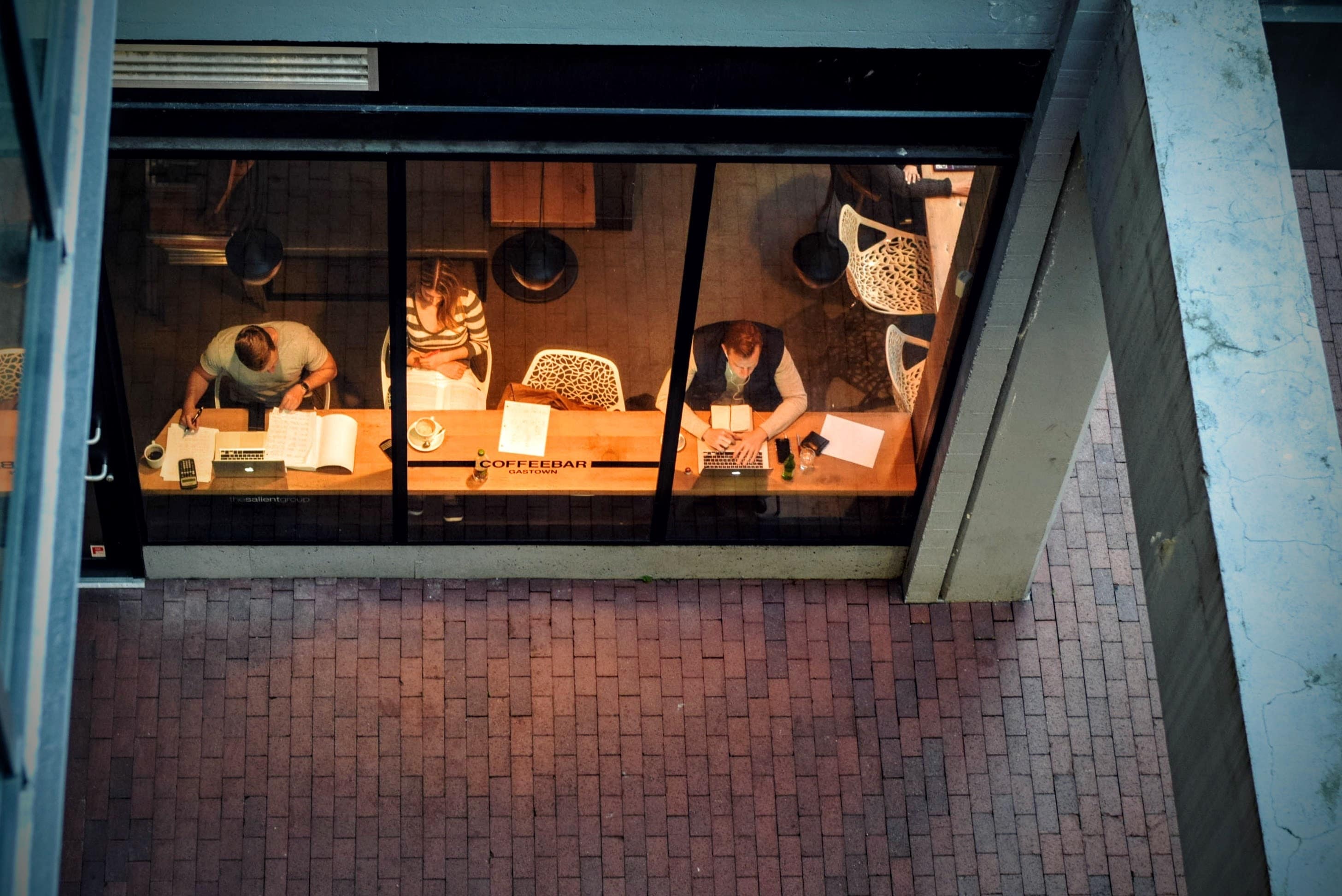WHAT A WAY TO MAKE A LIVING
Clair Cousins and Dr Gavin Hendricks
Have you ever stopped to think about what your brain is actually doing when you’re stressed out at work? Of course, you haven’t.
With work place change now a constant threat of recurring restructures, deadlines and demands, there is just too much else going on.
The days of Dolly Parton and her nine-to-five are a distant memory and despite an increase in flexible working practices and more focus on employee wellbeing, most of us are still working way beyond nine to five.
The result? Going to work is sometimes more like going to war and instead of feeling like warriors, we become worriers.
The open-plan office is a battlefield and it’s often littered with self-doubt, mistrust, frustration, conflict and loneliness.
So, what is our grey matter getting up to when we’re experiencing anxiety, frustration and mounting threat at work? Why doesn’t our mind obey our instructions to just keep calm and carry on?
IT IS ALL DARWIN’S FAULT
Our brains have been shaped by evolution with our most primitive, or reptilian brain, only focused on our survival. Our mammalian brain focuses on forming groups which bring hierarchy and power struggles into play. And finally, we have the primate brain which can balance threats and conflict with compassion, empathy and the ability to self-sooth.
We are hard wired to constantly monitor our surroundings for threat and whether real or imagined, these threats present themselves throughout our working day.
That is how we survive.
The open-plan office is a battlefield that’s often littered with self-doubt, mistrust, frustration, conflict and loneliness.
When we respond to a threat, our brains automatically release adrenalin and cortisol which numb our ability to self-soothe. We get stuck in a state of unproductive provocation, regress into conflict and lose sight of the potential for a win-win outcome. It all becomes about flight or fight.
GAME-CHANGING OUTCOMES
At The Resolution Centre we guide people to think and do things differently. The people, teams and leaders we work with tell us they want to do better both personally and professionally. They want stronger relationships and a common purpose that guides them towards shared goals.
Through a process of discovery, we often find that there is a disagreement, a breakdown in communication or an absence of trust – whether in the boardroom or a team level – that is preventing them from being at the top of their game.
Resolving this type of conflict, and actually changing the way our brain is wired encourages collective problem-solving. Although it may be difficult at times, the outcomes are game-changers that will see personal growth, stronger teams, and importantly improved wellbeing.
Work shouldn’t mean war. What can we do differently?
Photo by Brooke Cagle on Unsplash

BE THE BEST PERSON YOU CAN BE
So what can you start doing today that will help change your brain’s instinctive responses and move you toward better health? Be kind. It sounds so simple, but we mean genuine kindness that nurtures wellbeing by identifying a need, empathising with it and putting a plan to help into action. Being kind is not about being nice, and you should be wary of false kindness.
You know the score, Rob from Finance calls to tell you he has kindly rushed through your expense claim but next thing you know, he’s at the side of your desk asking you to help with a management report that was due yesterday.
Or when the boss has kindly signed you up to a three-day conference that has a minor relevance to your role when she knows it’s your wedding anniversary that week.
This isn’t kindness. It’s manipulation thinly veiled as having your best interests at heart.
What can we start doing to help change our brain’s instinctive responses and move us towards better health?
If we can start by creating workplace cultures where doing something for someone doesn’t make them feel like a doormat or come with the expectation of something in return, we will build trust and isn’t that at the centre of everything?
Improving wellbeing in the workplace is about more than yoga at lunchtimes and smoothies in the breakout room. It is about unlocking people’s true potential, and to do that effectively we need to be open to innovative methods of changing the way we think and making sure that work is no longer war.



